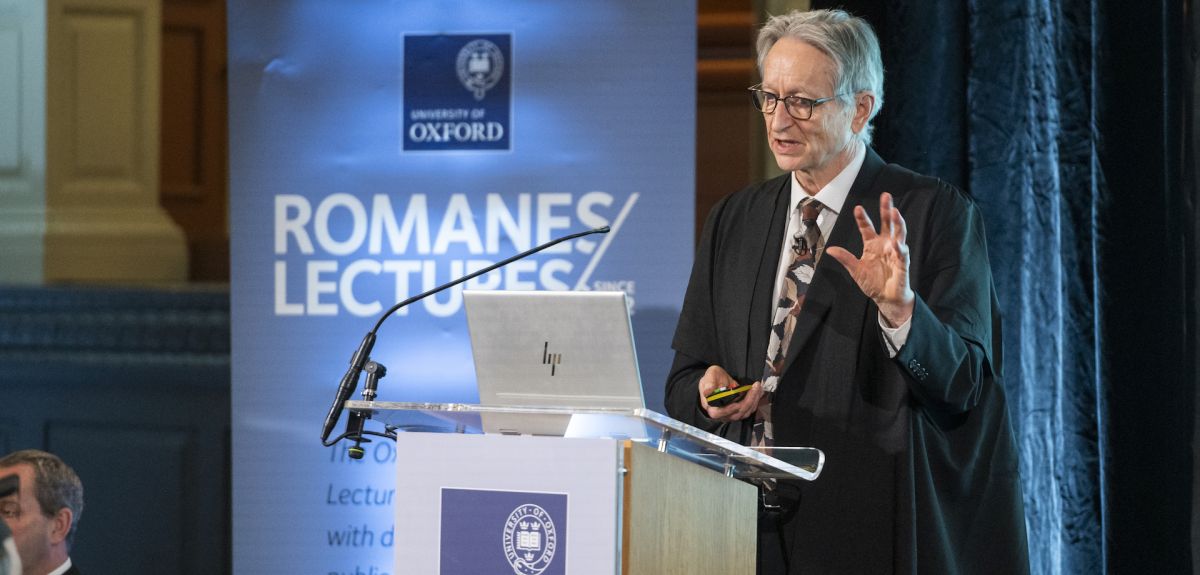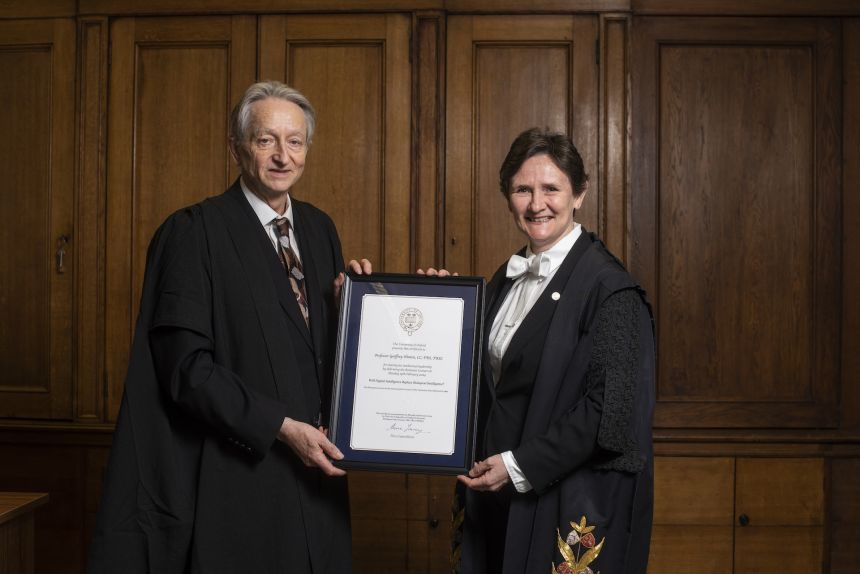
Romanes Lecture: ‘Godfather of AI’ speaks about the risks of artificial intelligence
University of Oxford hosted Professor Geoffrey Hinton, CC, FRS, FRSC, the ‘Godfather of AI’, to deliver its annual Romanes Lecture at the Sheldonian Theatre on Monday, 19 February.
The public lecture entitled ‘Will digital intelligence replace biological intelligence?’ discussed the dangers of artificial intelligence (AI) and how to ensure it does not take control of humans, and consequently, wipe out humanity. He said that the fact that digital intelligence is immortal and does not evolve should make it less susceptible to religion and wars, but ‘if a digital super-intelligence ever wanted to take control it is unlikely that we could stop it,’ he added.
The British-Canadian computer scientist and cognitive psychologist also spoke of how AI could replace humans in the workforce and how it could be used to spread misinformation. He had previously believed that it could take AI systems up to a century to become ‘super intelligent’. He now thinks that it could happen much sooner than he had anticipated.
Vice-Chancellor Irene Tracey CBE, FRS, FMedSci, presented a certificate to Professor Hinton for sharing his intellectual leadership by delivering the annual Romanes Lecture.
 Vice-Chancellor Irene Tracey CBE, FRS, FMedSci, presented a certificate to Professor Hinton for sharing his intellectual leadership by delivering the annual Romanes Lecture. Photo by John Cairns.
Vice-Chancellor Irene Tracey CBE, FRS, FMedSci, presented a certificate to Professor Hinton for sharing his intellectual leadership by delivering the annual Romanes Lecture. Photo by John Cairns.Professor Hinton’s work on neural networks shaped the AI systems of today. He was one of the researchers who introduced the backpropagation algorithm and the first to use backpropagation for learning word embeddings. His other contribution to neural network research includes Boltzmann machines, distributed representations, time-delay neural nets, mixtures of experts, variational learning and deep learning. His research group in Toronto made major breakthroughs in deep learning that revolutionised speech recognition and object classification.
Professor Hinton is a fellow of the UK Royal Society and a foreign member of the US National Academy of Engineering, the US National Academy of Science and the American Academy of Arts and Sciences. His awards include the David E. Rumelhart prize, the IJCAI award for research excellence, the Killam prize for Engineering, the IEEE Frank Rosenblatt medal, the NSERC Herzberg Gold Medal, the IEEE James Clerk Maxwell Gold medal, the NEC C&C award, the BBVA award, the Honda Prize, the Princess of Asturias Award and the Turing Award.
 Statins do not cause the majority of side effects listed in package leaflets
Statins do not cause the majority of side effects listed in package leaflets